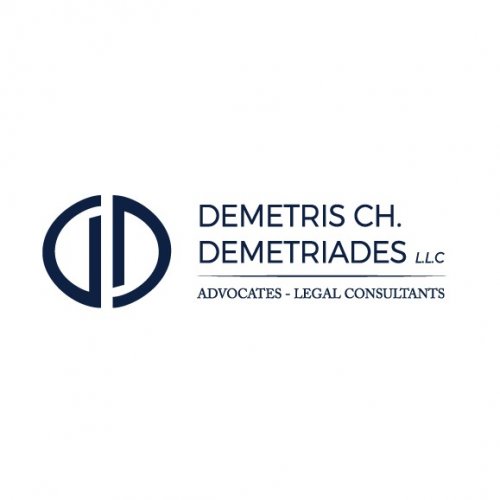Best Financial Services Regulation Lawyers in Cyprus
Share your needs with us, get contacted by law firms.
Free. Takes 2 min.
Or refine your search by selecting a city:
List of the best lawyers in Cyprus
About Financial Services Regulation Law in Cyprus
Financial Services Regulation in Cyprus is governed by a framework aimed at ensuring the stability and integrity of the financial system, protecting consumers, and maintaining Cyprus's reputation as an international financial center. The financial services sector in Cyprus is regulated primarily by the Cyprus Securities and Exchange Commission (CySEC), which oversees investment firms, funds, and market participants to ensure compliance with relevant laws and directives. Other important regulatory bodies include the Central Bank of Cyprus and the Insurance Companies Control Service. Cyprus's regulatory framework aligns closely with European Union directives and regulations, given its status as an EU member state.
Why You May Need a Lawyer
There are several reasons why individuals and businesses may need legal help concerning Financial Services Regulation in Cyprus. Common situations include setting up new financial entities, ensuring compliance with CySEC regulations, dealing with cross-border transactions, or responding to regulatory investigations. Lawyers specializing in financial services regulation can provide guidance on licensing, compliance audits, risk management, and dispute resolution. They can also assist in navigating complex legislation and represent clients in negotiations or litigation.
Local Laws Overview
The key aspects of local laws in Cyprus concerning financial services regulation include:
- Cyprus Securities and Exchange Commission Law: Governs the licensing and regulation of investment firms, brokers, and funds.
- Investment Services and Activities and Regulated Markets Law: Aligns with the EU's MiFID II Directive covering investment services provided within the EU.
- Alternative Investment Fund (AIF) Law: Governs the establishment and operation of AIFs in Cyprus, offering a flexible framework for fund managers.
- Anti-Money Laundering (AML) Law: Enforces EU directives on money laundering and terrorism financing, requiring financial institutions to implement robust AML measures.
- Insurance Law: Regulates the activities of insurers and ensures the protection of policyholders.
Frequently Asked Questions
What entities are regulated by CySEC in Cyprus?
CySEC regulates investment firms, brokers, fund managers, and other market participants involved in the provision of financial services in Cyprus.
How can I obtain a financial services license in Cyprus?
To obtain a license, you need to apply to CySEC, demonstrating compliance with regulatory requirements, including capital adequacy, internal controls, and expertise.
What are the reporting obligations for financial entities in Cyprus?
Entities must adhere to regular reporting obligations, such as financial statements, transaction reports, and compliance declarations, in line with CySEC's rules and EU regulations.
How does Cyprus's regulatory framework align with EU laws?
As an EU member, Cyprus harmonizes its financial regulation with EU directives, ensuring conformity with EU standards and facilitating cross-border financial activities.
What are Alternative Investment Funds (AIFs) in Cyprus?
AIFs in Cyprus are investment funds that offer flexibility for managers and investors, subject to the regulatory framework governing their establishment and operation.
What happens if a financial services firm breaches regulations?
Breaching regulations can result in penalties, fines, or license revocation by CySEC. Legal representation can help navigate this process and achieve compliance.
How are disputes in the financial services sector resolved?
Disputes may be resolved through negotiation, mediation, arbitration, or legal proceedings, where lawyers can represent the interests of the affected parties.
What measures are in place for investor protection in Cyprus?
Investor protection is ensured through strict compliance requirements, transparency, and the provision of accurate, timely information by financial service providers.
How do anti-money laundering laws affect financial services in Cyprus?
AML laws require firms to implement measures to detect and prevent money laundering activities, including client due diligence, record-keeping, and suspicious activity reporting.
Are there specific regulations for cross-border financial services?
Yes, cross-border services are regulated under EU laws, such as MiFID II, which facilitate smooth operation but require compliance with both local and international regulations.
Additional Resources
Consider these resources for further assistance in financial services regulation in Cyprus:
- Cyprus Securities and Exchange Commission (CySEC): Provides guidance on licensing, compliance, and regulations.
- Central Bank of Cyprus: Offers insights on monetary policies and financial stability measures.
- Insurance Companies Control Service: Oversees the regulation of insurance companies.
- Professional Associations: Such as the Cyprus Bar Association, for referrals to specialized lawyers.
Next Steps
If you require legal assistance in financial services regulation in Cyprus, start by identifying your specific legal needs. You may want to consult a lawyer specializing in Cyprus financial regulations to help navigate the complexities of the law. You can search for experienced legal professionals through the Cyprus Bar Association, evaluate their expertise, and arrange consultations to discuss your case. Additionally, keep abreast of CySEC announcements and updates to stay informed about regulatory changes that might affect your situation.
Lawzana helps you find the best lawyers and law firms in Cyprus through a curated and pre-screened list of qualified legal professionals. Our platform offers rankings and detailed profiles of attorneys and law firms, allowing you to compare based on practice areas, including Financial Services Regulation, experience, and client feedback.
Each profile includes a description of the firm's areas of practice, client reviews, team members and partners, year of establishment, spoken languages, office locations, contact information, social media presence, and any published articles or resources. Most firms on our platform speak English and are experienced in both local and international legal matters.
Get a quote from top-rated law firms in Cyprus — quickly, securely, and without unnecessary hassle.
Disclaimer:
The information provided on this page is for general informational purposes only and does not constitute legal advice. While we strive to ensure the accuracy and relevance of the content, legal information may change over time, and interpretations of the law can vary. You should always consult with a qualified legal professional for advice specific to your situation.
We disclaim all liability for actions taken or not taken based on the content of this page. If you believe any information is incorrect or outdated, please contact us, and we will review and update it where appropriate.
Browse financial services regulation law firms by city in Cyprus
Refine your search by selecting a city.
















